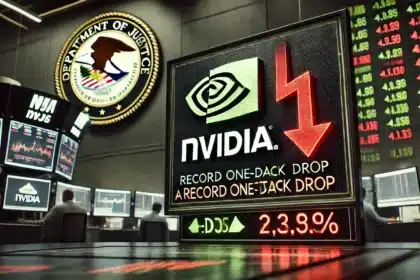Cryptocurrencies have seen meteoric rises in recent years, with some experts forecasting the market heights yet to come. In a newly released report, analysts at Standard Chartered Bank make bold predictions for expansion, asserting that within just five years, cryptocurrency capitalization could swell to an astounding $10 trillion.
This bullish outlook hinges on anticipated shifts in American policymaking, especially in the aftermath of Donald Trump’s election victory and the regulatory reforms likely to follow in its wake. Some currencies have grown greatly in value and others may follow, though regulations pose uncertainties. If Washington embraces innovation, decentralized digital assets could revolutionize financial systems worldwide.

Anticipated Regulatory Reforms Under the New Administration
Standard Chartered’s analysis highlights the possible impact that the incoming American administration may have on the digital asset sector. The report anticipates that President Trump and the Republican-led Congress will pursue an agenda favourable to cryptocurrency adoption. Chief among the expected policy moves is the repeal of SAB 121, which currently discourages financial institutions from providing crypto custody services, in addition to legislating a clear framework for stablecoins to offer regulatory certainty to these digital currencies.
Furthermore, the bank foresees a lighter touch from the Securities and Exchange Commission regarding their oversight of the crypto industry. While talks have occurred regarding the formation of an official U.S. government-backed digital currency, Standard Chartered argues that such an outcome appears less plausible. In contrast, simplifying rules for institutions dealing in virtual currencies seems a more foreseeable early step, according to their analysis.
Projected Surge in Bitcoin and Ethereum Values
Aligned with its bullish market outlook, Standard Chartered reiterates its earlier stark predictions for sizeable price upsurges in leading cryptocurrencies by 2025. The bank envisions Bitcoin skyrocketing to $200,000 and Ethereum vaulting past $10,000 at the end of the next calendar year. These projections represent a dramatic growth spur from their contemporary market caps of approximately $76,500 and $2,950, respectively.
The anticipated regulatory changes are anticipated to play a pivotal function in energizing these price explosions, as they can bolster organizational adoption and investor belief in digital assets. Moreover, the report highlights that the sophisticated, volatile nature of cryptocurrencies will persist, with short-term value fluctuations remaining a possibility before the projected long-term increases are eventualized.

Evolving Dynamics Within the Crypto Market
Beyond projecting cryptocurrency prices, Standard Chartered’s scrutiny spotlights a potential reshaping of the digital asset market’s architecture. In spite of Bitcoin’s anticipated valuation increase, the financial institution anticipates its dominance within the crypto sector declining from the current lofty 60% mark to approximately 40% by the conclusion of 2026.
This expected modification is credited to the emergence of novel subsectors and the mainstream adoption of pragmatic applications for an assortment of digital possessions. The bank comments that “Comparable to 2021, existing electronic assets are likely to observe price inflations and groundbreaking subsectors unfolding; during this occasion, real-world employments are ultimately primed to enter the mainstream.”
The Final Words
Standard Chartered’s optimistic projections underscore the potential for significant growth in the cryptocurrency market, driven by anticipated regulatory reforms under the forthcoming U.S. administration. The bank’s forecasts for Bitcoin and Ethereum suggest substantial value appreciation, while the expected diversification within the crypto sector points to a dynamic and evolving market landscape. As these developments unfold, stakeholders will be closely monitoring the regulatory environment and market responses to navigate the opportunities and challenges in the digital assets space.






























